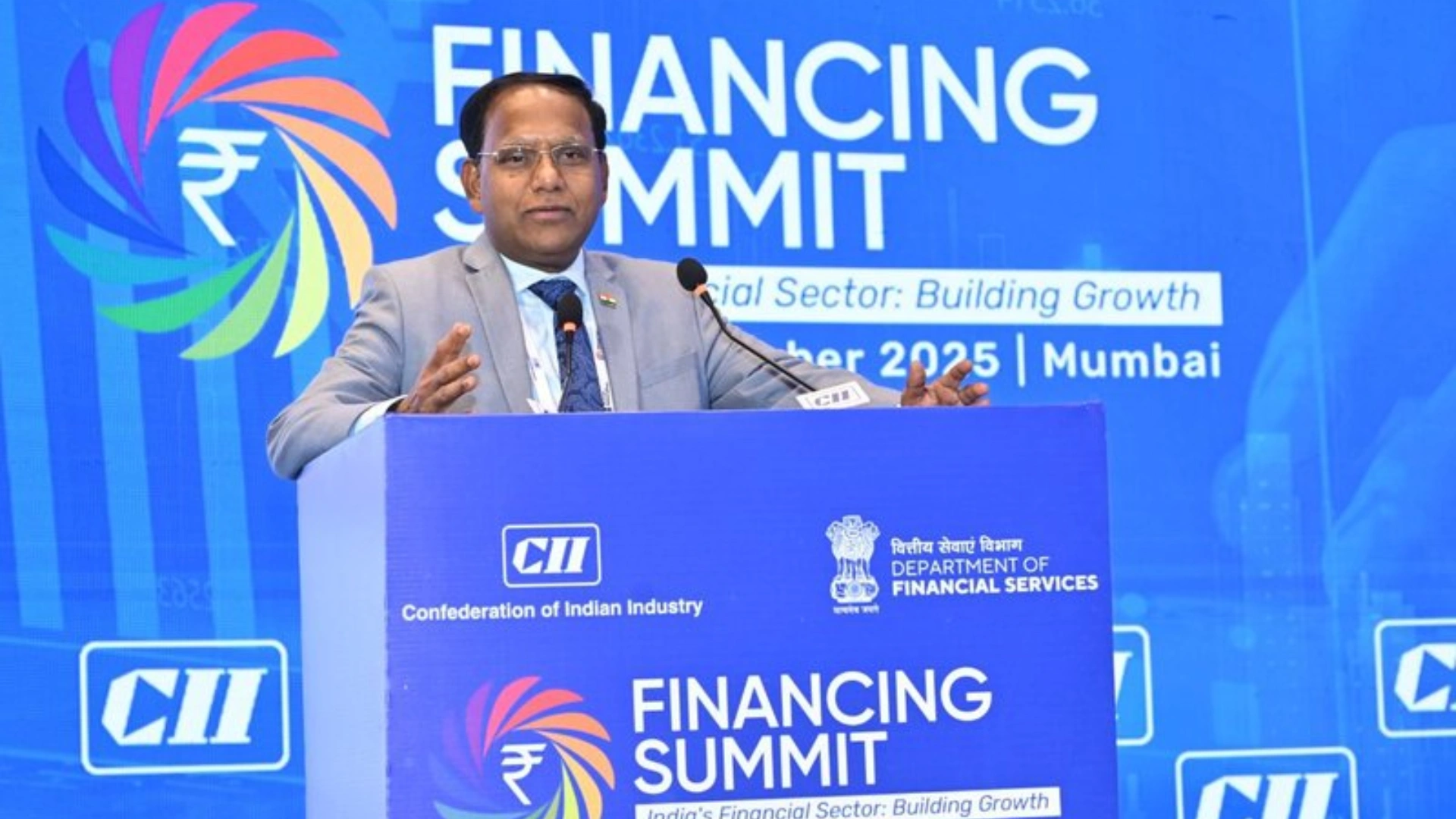India’s progress in financial inclusion and digital transformation has become one of the country’s biggest achievements in recent years, said M. Nagaraju, Secretary of the Department of Financial Services (DFS) at the CII Financing Summit 2025. He said these reforms have changed India’s financial system and increased people’s trust in public institutions.
He said that over the past decade, these reforms have improved the financial landscape and built greater confidence among citizens. Nagaraju noted that India’s Financial Inclusion Index has continued to rise. It reached 67.0 in March 2025, up from 64.2 the previous year. This shows that more people have joined the formal financial system.
He highlighted the strong growth of the Pradhan Mantri Jan Dhan Yojana (PMJDY). In the last one and a half years, Jan Dhan accounts have increased from 52 crore to nearly 57 crore. This growth ensures that millions of people now have access to basic banking services.
He said that this progress was made possible not only because of public sector banks but also due to the support of major private banks such as HDFC Bank, Yes Bank and ICICI Bank. Their participation has helped expand financial services across the country.
Recently, there has been much discussion about the privatisation of public sector banks. Everyone is talking about PSU banks and comparing them with private banks. Finance Minister Nirmala Sitharaman also recently stated that bank nationalisation did not yield the desired results and that privatisation of banks will not affect financial inclusion.
But these government banks are the backbone of the Indian economy and are trusted by millions of Indians. For decades, these banks have supported India’s economic growth, but now they are being sidelined. Today, with the help of data, we will try to understand the importance of PSU banks.
Pradhan Mantri Jan-Dhan Yojana
- Launched: 28 August 2014
- Data as on 22/10/2025 (All figures in Crore)👇
| Bank Name / Type | Number of Beneficiaries at rural/semiurban centre bank branches | Number of Beneficiaries at urban metro centre bank branches | No of Rural-Urban Female Beneficiaries | Number of Total Beneficiaries | Deposits in Accounts (In Crore) | Number of Rupay Debit Cards issued to beneficiaries |
|---|---|---|---|---|---|---|
| Public Sector Banks | 34.20 | 9.83 | 24.29 | 44.04 | 215418.67 | 33.79 |
| Regional Rural Banks | 9.30 | 1.45 | 6.25 | 10.74 | 51489.41 | 3.88 |
| Private Sector Banks | 0.79 | 1.10 | 1.06 | 1.89 | 8149.68 | 1.53 |
| Rural Cooperative Banks | 0.19 | 0.00 | 0.10 | 0.19 | 0.01 | 0.00 |
| Grand Total | 44.47 | 12.38 | 31.71 | 56.85 | 275057.78 | 39.19 |
The above data reveals the reality. PSU banks have opened 34.20 crore PMJDY accounts, whereas private banks have opened only 0.79 crore. This stark difference clearly highlights the crucial role and importance of PSU banks in promoting financial inclusion.
If we talk about enrollments under PMJJBY, PMSBY, and APY schemes, PSU banks once again lead the way. They have enrolled millions of customers in these government schemes, while private banks lag far behind.
